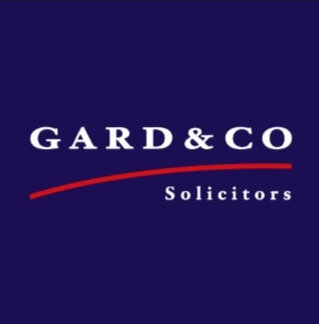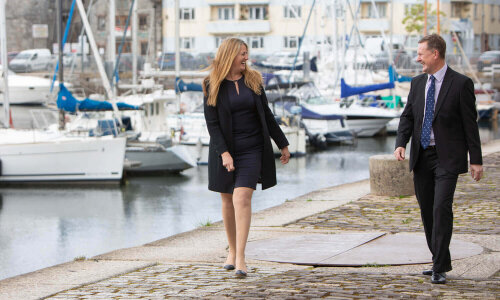Best Wrongful Death Lawyers in Plymouth
Share your needs with us, get contacted by law firms.
Free. Takes 2 min.
List of the best lawyers in Plymouth, United Kingdom
About Wrongful Death Law in Plymouth, United Kingdom
Wrongful death law in Plymouth, United Kingdom is designed to provide legal remedies and financial compensation to the families or dependants of individuals who have died as a result of the wrongful actions or negligence of another party. These actions may be due to medical malpractice, road traffic accidents, workplace incidents, or other forms of negligence or misconduct. The intention is to hold the responsible party accountable and to assist those left behind in dealing with the financial and emotional impact of their loss.
Why You May Need a Lawyer
Wrongful death cases can be emotionally taxing and legally complex. You may need a lawyer if:
- Your loved one died in an accident caused by another person's negligence
- The responsible party or their insurer denies responsibility
- You are unsure if you have a valid wrongful death claim
- You need to navigate complicated legal procedures and court filings
- Determining the correct value of financial compensation is challenging
- There are multiple parties involved or disputes among potential claimants
- Statutes of limitation or deadlines are approaching
- You require negotiation with insurance companies or legal representatives of the other party
- There is a risk of a claim being undervalued or dismissed
- You want peace of mind that your case is being handled professionally and thoroughly
Local Laws Overview
In Plymouth, as part of England and Wales, wrongful death claims are governed primarily by the Fatal Accidents Act 1976 and the Law Reform (Miscellaneous Provisions) Act 1934. Key aspects include:
- The claim must arise from a death caused by the wrongful act, neglect, or default of another person or entity
- Certain family members or dependants, such as spouses, children, parents, and some cohabitants, are eligible to make a claim
- Compensation can cover bereavement damages, funeral expenses, and loss of financial dependency
- A claim for pain, suffering, and loss of amenity suffered by the deceased prior to death can sometimes be made through their estate
- Claims generally must be made within three years from the date of death or the date when the cause of death became known
- In some cases, an inquest may be held to establish the cause of death, which can be used as evidence in the civil claim
- Courts located within Plymouth or otherwise in the jurisdiction of England and Wales would handle such cases
Frequently Asked Questions
What qualifies as a wrongful death in Plymouth?
A wrongful death is where someone dies as a result of the negligence or wrongful act of another person or entity, such as in cases of road accidents, medical negligence, or workplace incidents.
Who can bring a wrongful death claim in Plymouth?
Claims can usually be brought by close relatives or dependants of the deceased, including spouses, civil partners, children, parents, and in some cases others who were financially dependent on the deceased.
What kind of compensation can be awarded in a wrongful death case?
Compensation might include a bereavement award, funeral expenses, loss of financial support, and, in some situations, damages for pain and suffering experienced by the deceased before passing.
Is there a time limit to file a wrongful death claim?
Yes, the limitation period is normally three years from the date of death or when the cause of death became known. There may be exceptions in certain circumstances.
What if the person responsible for the death has been criminally convicted?
A criminal conviction can strengthen a civil claim for wrongful death but is not required. Wrongful death claims are separate from criminal proceedings and have a lower burden of proof.
Do I have to go to court to resolve a wrongful death claim?
Not all claims require a court hearing. Many are settled out of court through negotiation, but it is important to prepare for court if a fair settlement cannot be reached.
Can an estate make a claim on behalf of the deceased?
Yes, the estate can bring claims for losses suffered by the deceased between their injury and death. Dependants may claim for their own losses.
What if the deceased did not have dependants?
If there are no eligible dependants, the claim may still be pursued by the estate for pain and suffering or losses incurred before death but compensation might be more limited.
What evidence is needed for a wrongful death claim?
Common evidence includes medical records, accident reports, witness statements, financial records, and findings from coroner's inquests.
Do I need a solicitor to bring a wrongful death claim?
While it is not legally required, it is highly recommended to seek legal help due to the complexity, emotional difficulty, and the expertise needed to achieve the best outcome.
Additional Resources
The following resources may be helpful to those seeking support or guidance with wrongful death matters in Plymouth:
- Citizens Advice Plymouth - Offers free and confidential advice on legal issues
- Plymouth Coroner’s Office - Provides information about inquests and coronial investigations
- Plymouth Law Society - Can help you find qualified local solicitors experienced in wrongful death cases
- Action Against Medical Accidents (AvMA) - Supports people affected by medical accidents, including wrongful death due to clinical negligence
- Gov.uk - Central government website with information about Fatal Accidents Act claims
Next Steps
If you believe you may have a wrongful death claim in Plymouth:
- Gather as much relevant documentation and evidence as possible, such as death certificates, medical reports, witness details, and any correspondence
- Make a timeline of events and list the impact of the loss, both financial and emotional
- Contact a solicitor experienced in wrongful death claims in Plymouth for a consultation
- Act promptly to avoid missing the three-year limitation period for making a claim
- Engage with support services or counseling if needed, as wrongful death cases can be emotionally challenging
Legal professionals can help assess your case, explain your rights, and guide you through the process of seeking justice and financial support for your loss.
Lawzana helps you find the best lawyers and law firms in Plymouth through a curated and pre-screened list of qualified legal professionals. Our platform offers rankings and detailed profiles of attorneys and law firms, allowing you to compare based on practice areas, including Wrongful Death, experience, and client feedback.
Each profile includes a description of the firm's areas of practice, client reviews, team members and partners, year of establishment, spoken languages, office locations, contact information, social media presence, and any published articles or resources. Most firms on our platform speak English and are experienced in both local and international legal matters.
Get a quote from top-rated law firms in Plymouth, United Kingdom — quickly, securely, and without unnecessary hassle.
Disclaimer:
The information provided on this page is for general informational purposes only and does not constitute legal advice. While we strive to ensure the accuracy and relevance of the content, legal information may change over time, and interpretations of the law can vary. You should always consult with a qualified legal professional for advice specific to your situation.
We disclaim all liability for actions taken or not taken based on the content of this page. If you believe any information is incorrect or outdated, please contact us, and we will review and update it where appropriate.











